The average age of cars on the road continues to rise. And as vehicles get older, they require more repair and service is a must. Philkotse.com recommends car owners and drivers who own or drive older cars, SUV, or trucks to be more diligent about their vehicle’s preventative maintenance.
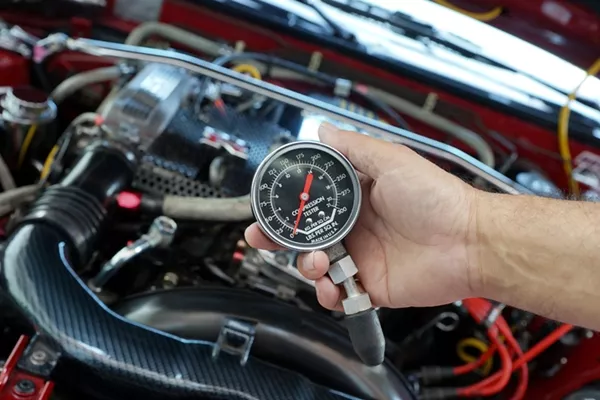
Various maintenance procedures keep the vehicle operating reliably and safely
"With the average vehicle age exceeding 11.5 years, the chance of a breakdown or service issue on an older vehicle is much greater. The Car Care Council urges drivers of older vehicles to implement a preventative maintenance plan for their vehicle to minimize the chances of a roadside breakdown and to also help their vehicle run more efficiently and economically," said Rich White, the executive director of Car Care Council.
Experian Automotive stated that the average age of passenger cars on the road continues to rise, from 11.29 years in the 1st quarter of 2015 to 11.61 years in 2019. Various maintenance procedures keep the vehicle operating reliably and safely.
The most common methods involve air conditioning, brakes, tires, hoses, belts, and checking the oil, fluids, and filters. It's also recommended to have annual wheel alignment and tune-up.
These most common car procedures do not only ensure that the vehicle is operating correctly. It also maintains its long-term value. Let's dig more into the different procedures in preventative maintenance and how it can improve the life of your car as it aged.
>>> Read more: 7 Basic Car Maintenance All Philippine Drivers Should Know
1. Oil change schedules
Replacing engine oil is crucial to the overall performance and condition of the car, most notably when the vehicle is aging. Several factors affect how often you should replace the engine oil of your car. Most commonly, it depends on the distance traveled by car and the air quality where the vehicle is driven regularly.
Additionally, car owners should replace other car fluids, including gear and transmission fluid. Failure to do so can result in a weak operation mechanism, which can cause severe damage to the car components.
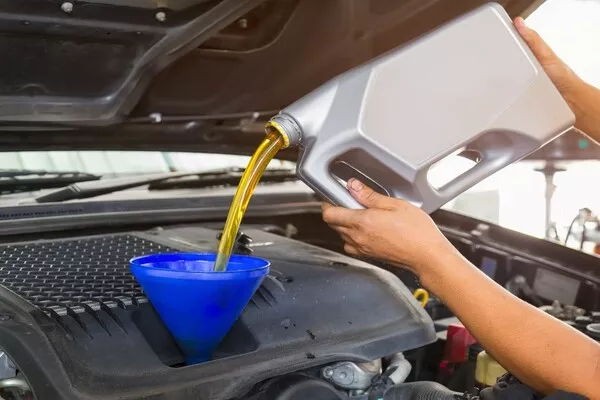
Replacing engine oil is crucial to the overall performance and condition of the car
2. Checking and replacing filters
When replacing engine oil, oil filters should also be replaced. Commonly, people with a limited budget disregard changing the filters, or they sometimes buy cheaper and low-quality filters. Take note that inferior quality filters might not catch all foreign or metallic debris, which in turn will cause severe damage to the engine.
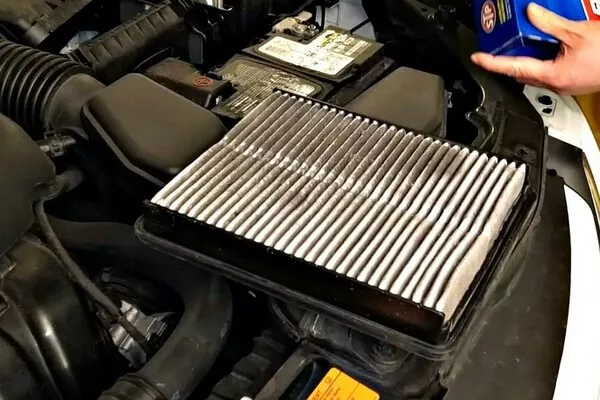
When replacing engine oil, oil filters should also be replaced
>>> Check out:
- 6 common kinds of car air filter & how to choose the best one
- Replacing car air filter: Must-have skills that every Filipino driver needs to know
3. Checking car belts
A regular engine usually has various belts that make the vehicle run properly. It includes a fan belt, drive belt, timing belt, and power steering belt. Commonly, belts are made of rubber, thus degrade as time goes by.
Car owners should replace these belts according to what the manufacturers suggest. It is crucial to prevent loss of electrical power, overheating, mechanical breakdown, and heavy steering. If you fail to replace the timing belt on time, it may result in severe engine breakdown, which will be expensive to repair.
4. Checking and replacing a car battery
Car batteries have an end-of-life period. Most batteries from modern vehicles have a life expectancy of 2 to 3 years. Replacement batteries usually have 12, 15, and 21-month life cycles. Their prices vary depending on the brand and guaranteed lifespan. Don't forget to replace your car’s battery as soon as it starts showing signs of battery failure or its warranty expires. Doing so will help you avoid suffering from a dead battery.
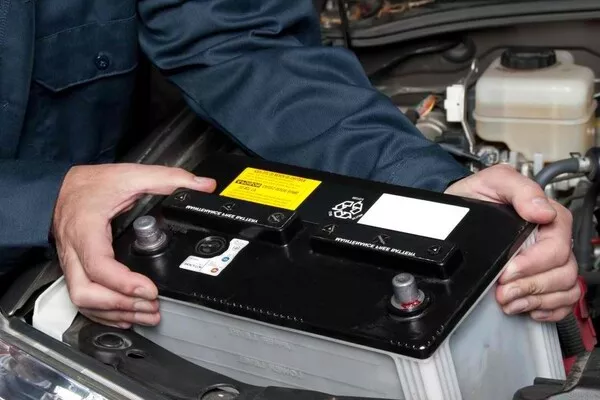
Car batteries have an end-of-life period
5. Transmission flushes and checkup
One of the integral parts of every car is the transmission. It requires regular oil flushes and checkups to maintain its good shape.
6. Brakes checkup
Keep in mind that the car brakes keep you and your passengers safe. This car component also requires regular checkups. This will ensure that there won't be any damage to your rotors, which will save you money from expensive repairs or roadside emergencies.
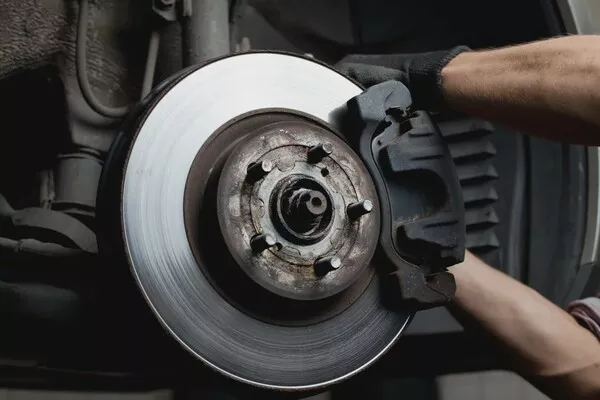
Car brakes also require regular checkups
>>> Make sure you know: 6 warning signs of a poor braking system
7. Air-con checkup
The Philippines is a tropical country. Therefore, cars need to have a functioning air-conditioner in our daily drive. It is especially crucial with the daily gridlock our roads have.
8. Rotate and replace tires
After several thousand kilometers, regular car tires do wear out because they are made from rubber. One effective way to make your tires (including the spare) the last longer is to have them rotated every 5,000or more kilometers. It will ensure that the tires will wear out evenly.
Additionally, you should also check the tire's life with tire manufacturers to make sure you are replacing them accordingly. Also note that even if you sparingly use your tires, it still tends to fail because of age.
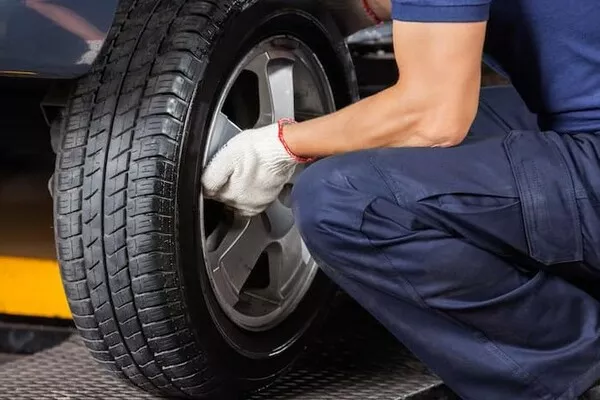
One effective way to make your tires last longer is to have them rotated every 5,000or more kilometers
These different procedures are fundamentally more important as the car ages. It's mainly because, through time, car parts and components tend to wear and get damaged. Preventative maintenance is vital to prolong the life of the car and, at the same time, ensure that it will still operate safely and reliably despite its age.
>>> FYI: Tire rotation: Everything that Filipino drivers need to know
Why is preventative maintenance important?
Cars are one of the most expensive possessions we can have. And because of that, it needs to be well-maintained for optimal performance. The best way to make sure your vehicle will serve well is to carry out regular preventative maintenance checks on it.
Although car repairs are sometimes unavoidable, preventative maintenance can help in preventing expensive repairs in the future. It can potentially save you money at the same time it keeps your vehicle in good working condition. It also keeps you and your passengers safe.
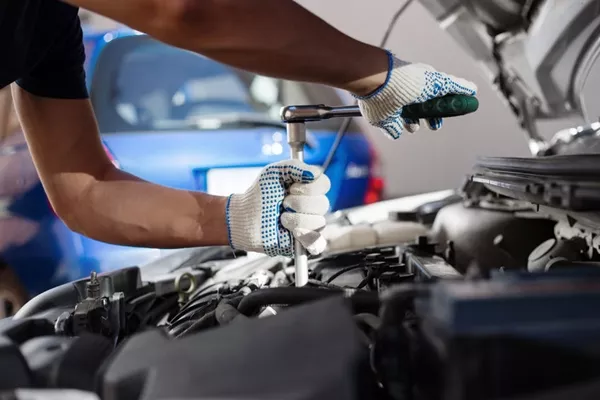
Cars are one of the most expensive possessions we can have
Remember that car components have varying life expectancy. There are certain times when you need to replace or top up parts, fluids or lubricants are required. Always inspect the batteries, brakes, transmission, fluids, and tires of your car.
Consult your mechanic if you think some components and parts are already damaged, faulty, or not working properly. This will prevent or minimize further damage to other car components and your car's overall performance.

Remember that car components have a varying life expectancy
Preventative maintenance is the key to keeping your vehicle running smoothly for a decade or more. Most people don't know that doing it is pretty straightforward. Every car owner can actually do some of the procedures on their own at home.
Or to be sure, they can let a certified mechanic handle the repairs and tune-ups. All the resources you need can be found both online and inside local garages.
Recent posts
- Car maintenance: Things you should know when the fuse keep blowing Nov 30, 2022
- Car maintenance: 5 signs of automatic transmission problems Aug 17, 2022
- Car maintenance tips: How to inspect and replace serpentine belts Feb 19, 2021
- 7 steps and preventive maintenance tips when shipping your car Aug 16, 2022
- Car maintenance: 4 steps to remove interior scuff marks Aug 17, 2022












